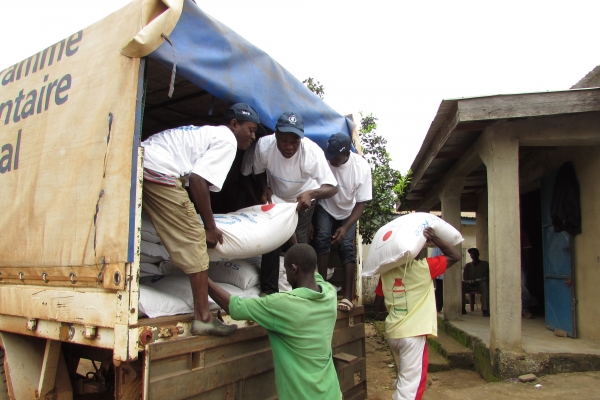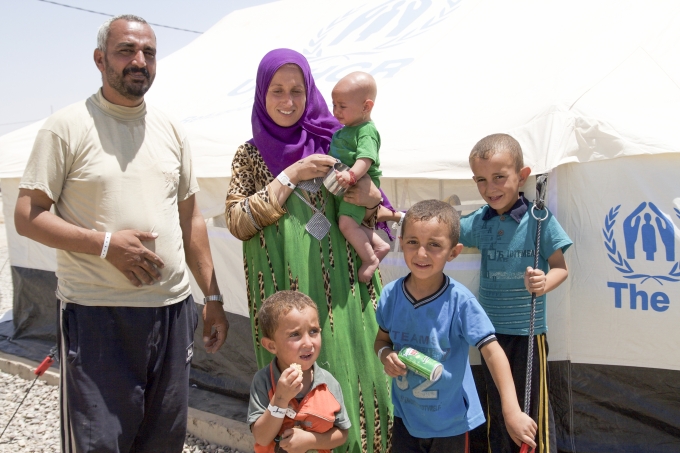The Logistics Cluster, led by the United Nations World Food Programme (WFP), has welcomed a generous contribution of US$860,000 from the Iraq Humanitarian Fund (IHF). The Cluster facilitates the movement of humanitarian supplies including food, medicines and even ambulances on behalf of the entire humanitarian community in Iraq.
“This contribution is perfectly aligned with the objectives of the IHF, to provide timely and flexible humanitarian funding to enable effective emergency response, increase humanitarian access, and strengthen coordination and partnerships among local and international responders,” said Marta Ruedas, the United Nations Humanitarian Coordinator for Iraq.
With this contribution, the Logistics Cluster will continue to provide coordination and information management support to the humanitarian community. The Logistics Cluster will also continue to facilitate common storage services for humanitarian supplies at three main operational hubs in Baghdad, Dahuk and Erbil, while maintaining a stock of mobile storage units ready to be deployed and installed at short notice.
“The Logistics Cluster plays a critical role in the Iraq context, offering logistics solutions and technical support to humanitarian partners responding to the needs of highly vulnerable displaced families and returnees,” said Sally Haydock, WFP Representative in Iraq. “We thank the IHF, the Humanitarian Coordinator and donors that have made this timely contribution possible.”
Established in 2015, the Iraq Humanitarian Fund supports humanitarian partners, allowing them to respond to the complex and dynamic situation in the country. IHF allocations have been made possible thanks to generous contributions from the United Kingdom, Germany, Netherlands, Belgium, Sweden, Ireland, United States, Norway, Denmark, Australia, Canada and Cyprus.
Since 2014, the IHF has provided US$3.5 million in funding to WFP activities in Iraq, including food assistance to internally displaced people and support for the Food Security, Emergency Telecommunications and Logistics Clusters.
As Iraq emerges from four years of conflict and unrest, the entire humanitarian community is providing critical resilience and recovery support for vulnerable communities after years of hardship, conflict and displacement.
(Source: WFP)


